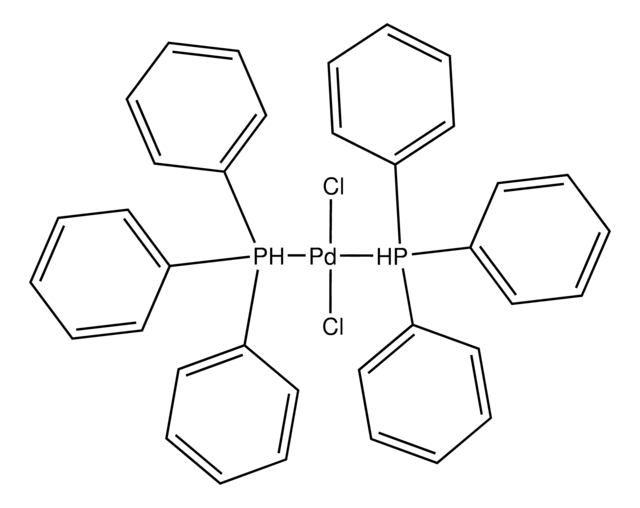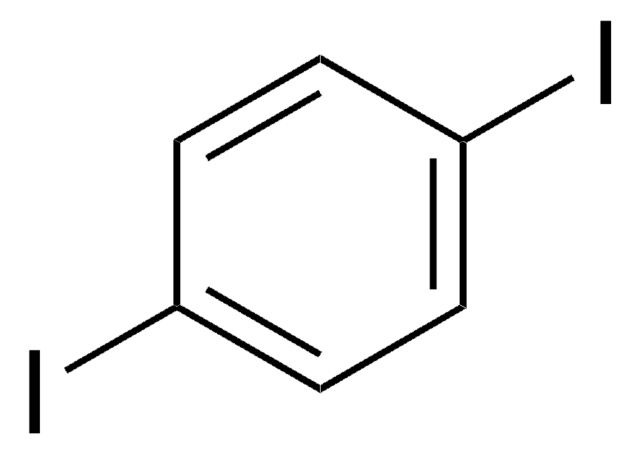632090
1,4-Diethynylbenzene
96%
Sinónimos:
1,4-Bis(ethynyl)benzene, 1,4-Diacetylenebenzene, 1,4-Diacetylenylbenzene, 1,4-Diethynylbenzene, p-Diethynylbenzene
About This Item
Productos recomendados
Quality Level
assay
96%
form
solid
mp
94-98 °C (lit.)
storage temp.
2-8°C
SMILES string
C#Cc1ccc(cc1)C#C
InChI
1S/C10H6/c1-3-9-5-7-10(4-2)8-6-9/h1-2,5-8H
InChI key
MVLGANVFCMOJHR-UHFFFAOYSA-N
¿Está buscando productos similares? Visita Guía de comparación de productos
Categorías relacionadas
Application
- Advanced Sensor Development: A novel approach to creating sensitive and selective copper(II) sensors on carbon fiber microelectrodes using 1,4-Diethynylbenzene. This research enhances the performance and application range of electrochemical sensors, particularly in environmental monitoring and industrial processes (Nudurupati et al., 2023).
- High-Performance OLED Materials: Synthesis of highly phosphorescent dimers of PtAu(2) complexes using 1,4-Diethynylbenzene. This research opens new pathways for creating more efficient and durable organic light-emitting diodes (OLEDs), which are crucial for the development of next-generation display and lighting technologies (Zheng et al., 2022).
- Mixed-Valence Metal Complexes: A comprehensive study on the electronic structure and mixed-valence characteristics of 1,4-diethynylbenzene-bridged bimetallic complexes. This research provides insights into the tuning of electronic properties for potential applications in molecular electronics and catalysis (Safari et al., 2020).
signalword
Warning
hcodes
Hazard Classifications
Skin Sens. 1
Storage Class
11 - Combustible Solids
wgk_germany
WGK 3
flash_point_f
Not applicable
flash_point_c
Not applicable
ppe
dust mask type N95 (US), Eyeshields, Faceshields, Gloves
Elija entre una de las versiones más recientes:
¿Ya tiene este producto?
Encuentre la documentación para los productos que ha comprado recientemente en la Biblioteca de documentos.
Los clientes también vieron
Nuestro equipo de científicos tiene experiencia en todas las áreas de investigación: Ciencias de la vida, Ciencia de los materiales, Síntesis química, Cromatografía, Analítica y muchas otras.
Póngase en contacto con el Servicio técnico












